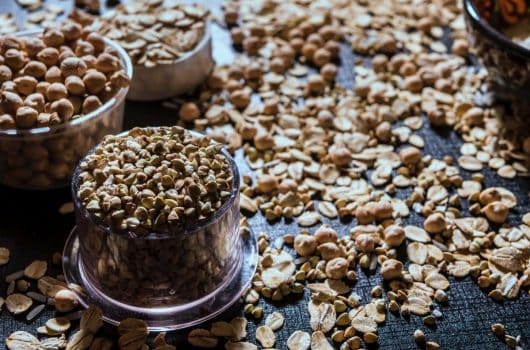When moms fall pregnant for the first time, they go through a rollercoaster of emotions. The excitement sometimes turns to fear and anxiety when they realize that they will be responsible for the wellbeing of another human life.
Dads can’t do much in the beginning except support the moms. This is by no means a less important job, seeing that undue stress can be counter-productive for the mothers in more ways than one. If the mother is under stress when the baby is born, one of the first things to go wrong is breastfeeding.
Lack of milk
Every new mom wants only the best for their newborn baby, and many moms end up stressing so much about the best care that it becomes counter-productive. Due to their stress and anxiety, they end up producing insufficient quantities of milk for their infant and need to resort to either formula to supplement their production or try and boost their milk production.
Natural supplements
When you find yourself running out of milk before your baby is satisfied, there are some natural ways to boost your milk production. Your hormones are the regulators for breast milk production. When your hormones are out of sync, your production goes down. Luckily, there are herbs like fenugreek that acts as a hormone booster to get things going again.

Fenugreek seeds contain hormone boosters that stimulate the production of sweat. Breasts are modified sweat glands and therefore when you consume the fenugreek, you trick your body into producing milk. After a mere 24 to 72 hours, milk production can already begin to increase. As soon as the seeds work their magic, the moms can stop drinking it.
How should I consume it?
Most herbal shops sell fenugreek in capsule or pill form. These pills contain ground fenugreek seed powder that is quickly swallowed. However, you could also make a fenugreek tea, but it is ill-advised, seeing that the tea comes with a very bitter taste. It is also believed to be the least effective way to consume the herb.

Recommended dosage
As with any natural medication, the amount that you consume will differ from someone else. It is, however, urged to take only 2 -4 capsules a day, three times a day. You could get away with drinking less, but you should not exceed the maximum allotted amount.
You should also use the herb in moderation and not make a daily ritual out of it while you are breastfeeding. Your body will start to rely on the herb and won’t produce milk without the hormone booster. The herb is there to act as a catalyst for breast milk production, not become the fuel for stimulation. When your milk comes in, you should reduce or stop your intake so that the body can do the rest on its own.
Side effects
Fenugreek is very safe with mild possible side effects. However, in certain rare cases, the herb has brought on severe asthma. For the average Jane, it can cause your sweat and urine to smell like maple syrup. This is a good indication that you could discontinue your intake.
Pregnant women need to stay far away from fenugreek as it can bring about uterine contractions and cause the baby to be born prematurely.
Dirty little secrets
There are a couple of unrelated uses for fenugreek as well. The herb is used to make synthetic estrogen and is used to enlarge breast. Some ladies consume it because it stimulates the growth of breast cells and causes the breast to look healthy and full. Other women use the herb as an aphrodisiac seeing that it increases sexual desire.
Then other women consume the herb to help reduce PMS and other symptoms of menopause.
If you don’t experience any of the side effects, this is one little herb that you should always keep in stock.
